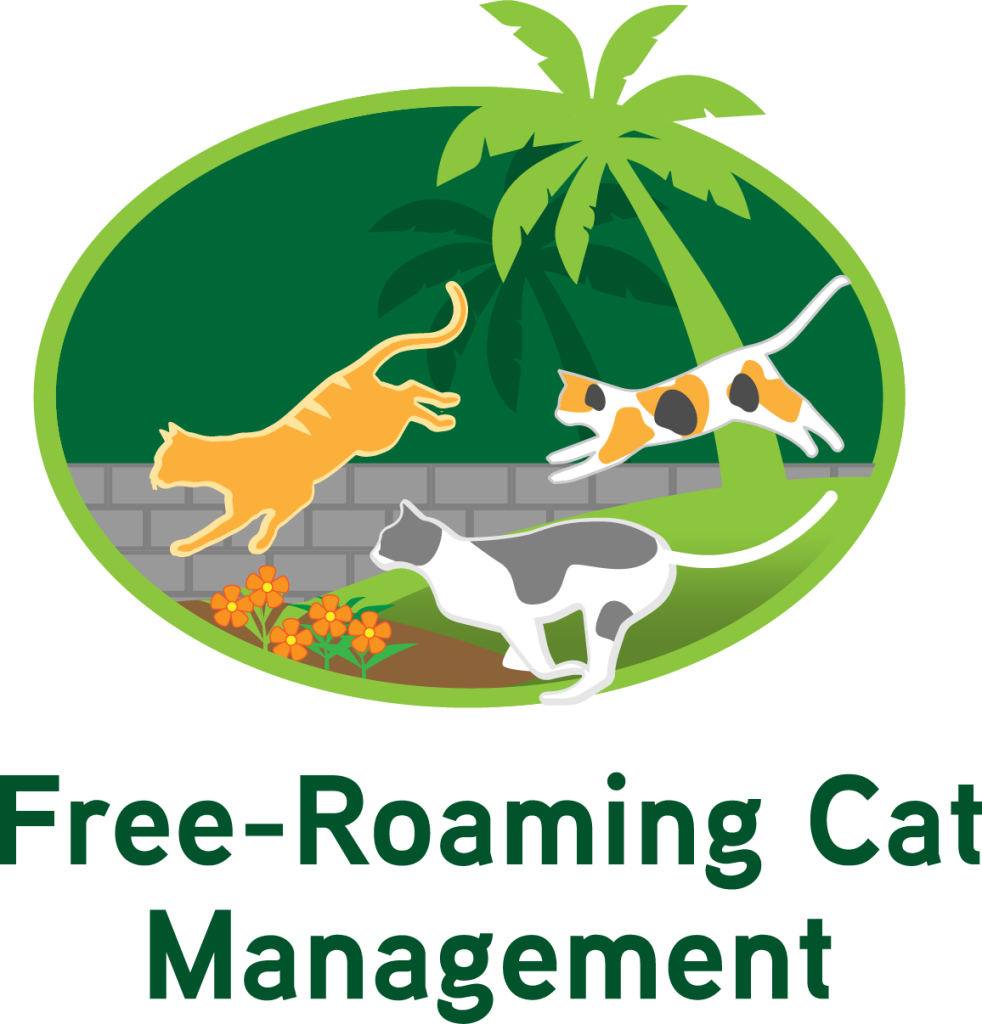free-roaming cat MANAGEMENT
The City and County of Honolulu and the Hawaiian Humane Society are moving aggressively to keep in check the free-roaming cat population on Oahu.
The strategic partnership calls for significantly controlling the city’s population of stray cats that can carry diseases, kill wildlife and be noisy nuisances when they are seeking a mate.
Among strategies being deployed to help decrease the city’s stray cat population is working with colony caregivers and volunteers to trap, neuter and then return sterilized cats to the colonies they came from.

A Free-Roaming cat is any domesticated cat, felis catus, that is not confined in a home, including outdoor, stray and abandoned pet cats; colony cats, and feral cats. Some are highly social, and others are very timid. Oahu has a large and visible population of Free-Roaming cats, mostly living in colonies near or within human populations. Managing and monitoring these colonies is critical in order to reduce the population gradually and humanely.
The city has partnered with the Hawaiian Humane Society by supporting two initiatives to control Free-Roaming cats:
- Adoption of feral kittens to keep them off the streets
- The spay and neuter program, Feline Fix, to control the Free-Roaming cat population, based on an approach called Trap-Neuter-Return-Manage (TNRM).
Hawaiian Humane Society supports a collaborative, multidisciplinary approach to free-roaming cats centered around targeted, community-based Trap-Neuter-Return-Manage (TNRM).
TNRM is a practice where free-roaming cat caregivers trap cats in their neighborhood and bring them to a participating clinic to be spay/neutered, ear-notched, vaccinated, and microchipped. After recovery, they are returned to their colony and cared for.
TNRM a humane strategy to improve cats’ lives and address overpopulation. Colony management after spay/neuter is also very important as it reduces behavioral issues, allows caregivers to determine the time and location of feeding, and monitor colony health. A well-managed colony is one where the population is steady or in decline, and the feeding is controlled, minimizing cats getting into garbage and begging for food from the public.
Colony managers/caregivers work independently from the Hawaiian Humane Society and volunteer their time to ensure the cats’ wellbeing and care.
Traps are available to rent Wednesday through Saturday 9 a.m. to 4 p.m. for TNRM use only at the Moiliili Campus Ginny Tiu Community Spay/Neuter Center. A $75 deposit and a $25 rental fee is required at the time of rental. Upon trap return, the renter will receive the $75 deposit back. To rent or for more information, please email SpayNeuterCenter@hawaiianhumane.org.
Getting kittens off the street is one key way to control the free-roaming cat population.
The Humane Society has issued a kitten season flow chart to help determine when kittens can be safely moved.
For more information about found kittens, visit the Hawaiian Humane Society’s kitten web page.
The City and County of Honolulu provides funding for the Hawaiian Humane Society’s spay and neuter surgeries for Free-Roaming cats through the Feline Fix program. Fees for the surgeries are completely waived while funding lasts.
Spay/neuter procedures for Free-Roaming cats include anesthesia, surgery, microchip, ear notch and FVRCP vaccine. This is a same-day procedure, meaning all Free-Roaming cats must be picked up the day of their procedure.
For information about the program visit the society’s Feline Fix Program web page.

